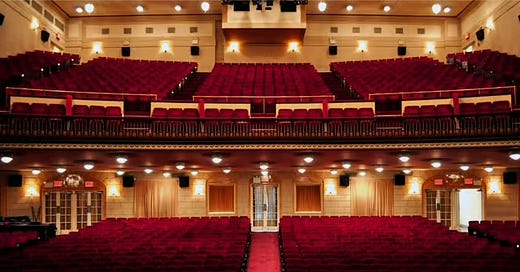A lot of people are comparing this week’s horrific LA wildfires to Hurricane Katrina and its devastation in New Orleans. The tension between natural disaster and manmade negligence feels apt. And this claiming of disaster — this "our Katrina" — speaks to something deeper about how we measure devastation.
This feels most difficult to explain — the confusing relationship between elements like wind and fire and rain that live alongside human beings and the other animals of this Earth. The forces that shape our world seem to operate with their own logic, one that defies our human need for meaning and pattern. And our negligence as humans, be it the Army Corps who failed to shore up the levees or our complicit leaders who turn a blind eye to the climate damage caused by corporations, adds another layer of senseless harm.
Yet, there is grace here, too. When these events take place, there is a side of humanity rarely seen outside of catastrophe, that of collective grief, grace and mutual aid. In these moments, we suddenly see we are united by invisible cords that appear when we step up to help.
I remember feeling the cord that connects New York City and New Orleans after Katrina when I attended a benefit event at The Town Hall in Midtown in 2006. The 1,300 miles between us seemed so few, the arbitrary nature of geography dissolved. I hardly remember who spoke or read or sang, but I remember the feeling of connection, as if grief itself could build bridges across the distance.
Maybe this is what Paul meant in his letter to the Corinthians — that comfort flows through us like a current, connecting past to present, neighbor to stranger. "May we be able to comfort those who are in any trouble with the comfort with which we ourselves are comforted."
And what happens when the bounds of acute trauma begin to get fuzzy, and we find ourselves back in our separate spheres? I ask myself this just days into the new year, after mass shootings, after the natural disasters that flash by as documented on social media, as news of the violence more than 5,500 miles away in Gaza, Syria and the rest of the Middle East starts to fade away from our screens.
For so many of us, this is surely a moment of collective grief, one suffered over so many other layers of unaddressed and disenfranchised grief mounting over these past several years, including that of our political time of fierce division.
How do we keep showing up for each other?
The challenge, it seems, is transforming this collective experience into lasting bridges between our separated selves.
It means signing up to help those in need today. It means seeking more moments of connection right at home — that night at Town Hall in 2006, like making time for a long chat on the street corner with a neighbor even though you know it'll mean showing up late to work, or scheduling a FaceTime with your loved one. Because what good are invisible tethers thousands of miles long when our connection close to home are frayed?
It’s hard. We are trying. I am wondering and practicing here and I'd love to hear how you are too. (Also, Mami, I promise we'll FaceTime today.)





Carla, my mother's name was Sylvia. It's now my grand daughter's name — Ashkenazai Jewish tradition of naming children after deceased relatives, often their great-grandparents.
I hear you mi nena. We will FaceTime today 🙌